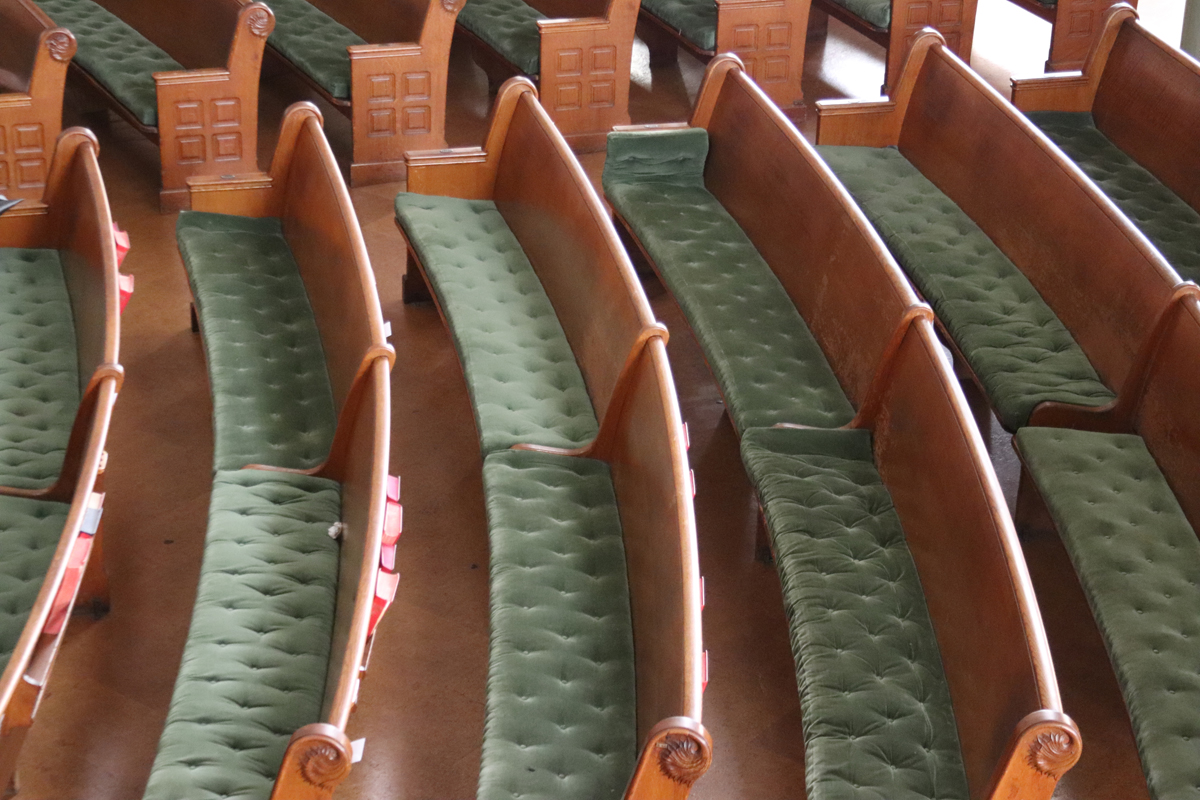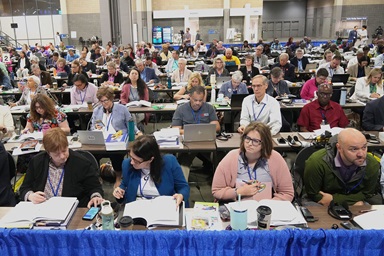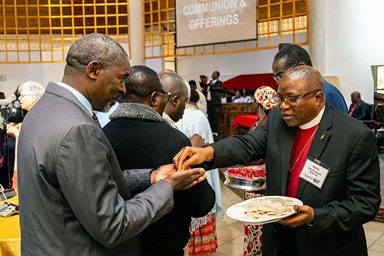Even if your church building is seeing little use these days, the property still faces risk.
“Most of our major losses from a property perspective are from fires or storms or from fires caused by storms,” said Jeff Koch, the president and chief executive officer of United Methodist Insurance. He added that burglaries also remain potential threats.
But just as United Methodist congregations are finding ways to connect and worship amid pandemic-related closures, they have ways to protect church property too.
Koch pointed to one bit of good news from a liability standpoint. Even with suspended in-person worship and stay-at-home orders, most churches still do not qualify as “vacant.”
“This is a situation where you probably still have people going in to check mail,” he said. “You maybe still have people going in on the weekend to do live broadcasts. You probably have people going in to check on the property.”
With that in mind, Koch offers five tips for U.S. churches to make the best use of those limited visits and keep people safe.
Useful links for COVID-19
United Methodist Insurance is a nonprofit started by the General Council on Finance and Administration, the denomination’s finance agency, with the goal of protecting people and property. At present, the nonprofit places insurance coverage for more than 1,800 churches.
The program has a resource page at www.uminsure.org/covid19links to connect churches for help with insurance and other matters during the pandemic.
The program has a resource page at www.uminsure.org/covid19links to connect churches for help with insurance and other matters during the pandemic.
For most churches, giving is down and money is tight. Koch suggests a church contact its insurance agent to discuss what coverage it has and what happens if a church needs to miss a payment. Some states, such as Louisiana, have issued moratoriums on policy cancellations or non-renewals during the outbreak. United Methodist Insurance has a link to each state’s insurance department.
“It’s best to start with your agent,” Koch said. “But if you feel like you are not getting a good answer from your agent or you are looking for the latest information on grace periods on cancellations, (states’ websites) are the place to check.”
He added that churches should also check with their conferences if they need help with paying for insurance, since conferences have a stake in maintaining the property.
2. Know who is visiting your building
While services are suspended, Koch recommends scheduling routine visits by designated people who visit individually or maintain safe distances with any appropriate personal protective equipment. He also urges having someone designated to check for damage or roof leaks after a storm, as many churches have experienced in recent weeks.
Church leaders also need to know who has keys to the property and where those keys are, Koch said.
“It’s important for you and your agent to understand what kind of traffic you have coming in and out of your building,” he said.
3. Secure your facility
Those who check on the church should ensure that security systems are armed and operational. Secure doors and windows, and put valuable items out of view. Whenever possible, Koch recommends moving exterior furniture and equipment inside.
The designated visitors should check for broken glass, evidence of break-ins, vandalism, theft or water leaks, Koch said. They should also make sure battery backup systems are working and that smoke detector batteries are fresh. He also suggests turning to local law enforcement for help.
“Ask your local law enforcement to drive by periodically or invite officers to use your parking to stop and do paperwork or watch a traffic light,” he said.
Subscribe to our
e-newsletter
Like what you're reading and want to see more? Sign up for our free daily and weekly digests of important news and events in the life of The United Methodist Church.
To prevent fires and save money in the process, turn off any electrical equipment.
Koch also recommends churches consider turning off their water during an extended absence.
In any case, he encourages churches use a property sensor — such as Roost Smart Water Leak and Freeze Detector — which can notify a person’s smartphone that there has been a rise in moisture near the water heater.
He suggests calling United Methodist Insurance Program at 1-866-203-0777. Depending on your insurance provider, your church may be eligible for up to two such detectors at no cost. Otherwise, such detectors can cost between $50 and $80 each.
“Guide One, our flagship partner, said it makes a tremendous difference in property loss because obviously the earlier you catch a leak and turn the water off, the less damage there will be,” Koch said.
5. Follow public health advice
The same health advice people have heard throughout this crisis still applies: Wash your hands and keep your distance.
“If you do have to go into the church, wash your hands before you leave the house and wash your hands when you get there,” he said. “Clean off whatever you touch and wash your hands when you go home. Do what you learned in kindergarten.”
Hahn is a multimedia news reporter for United Methodist News. Contact her at (615) 742-5470 or [email protected]. To read more United Methodist news, subscribe to the free Daily or Weekly Digests.
Like what you're reading? Support the ministry of UM News! Your support ensures the latest denominational news, dynamic stories and informative articles will continue to connect our global community. Make a tax-deductible donation at ResourceUMC.org/GiveUMCom.




